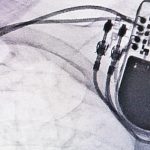In the competitive field of cardiac device jobs, a well-crafted resume can make all the difference in landing your dream role. Whether you’re applying for a position as a biomedical engineer, a sales representative, or a regulatory affairs specialist, your resume needs to highlight your relevant skills, experience, and accomplishments effectively. Here’s a guide to help you create a compelling resume tailored to the cardiac device industry.
1. Start with a Strong Summary
Your resume should begin with a powerful summary that encapsulates your professional identity and career goals. This section should be concise, typically 3-4 sentences, and should highlight your most relevant experience and skills.
Example: “Experienced biomedical engineer with over 10 years in the cardiac device industry, specializing in the design and development of innovative medical devices. Proven track record of improving device performance and ensuring compliance with FDA regulations. Seeking to leverage expertise in a senior engineering role at a leading cardiac device company.”
2. Emphasize Relevant Experience
Your professional experience section should focus on roles that are directly related to the cardiac device industry. For each position, include your job title, company name, location, and dates of employment. Use bullet points to highlight your key responsibilities and achievements, focusing on those that demonstrate your expertise and impact.
Example: Senior Biomedical Engineer MedTech Innovations, Boston, MA June 2015 – Present
- Led a team of engineers in the development of a next-generation pacemaker, resulting in a 20% improvement in battery life.
- Conducted extensive research and testing to ensure compliance with FDA and CE Mark regulations.
- Collaborated with cross-functional teams to design and implement new features, enhancing device functionality and patient outcomes.
3. Highlight Your Education and Certifications
Education is crucial in the cardiac device field. List your academic degrees, starting with the most recent. Include the degree earned, institution name, and graduation date. Additionally, highlight any relevant certifications or ongoing education that demonstrate your commitment to staying current in the field.
Example: Master of Science in Biomedical Engineering University of California, San Francisco Graduated: May 2014
Certifications:
- Certified Biomedical Equipment Technician (CBET)
- Six Sigma Green Belt
4. Showcase Technical Skills
Technical skills are a key component of a resume in the cardiac device industry. Create a dedicated section to list your technical proficiencies, using bullet points for clarity. Be specific about the tools, software, and methodologies you are proficient in.
Example: Technical Skills:
- CAD software (SolidWorks, AutoCAD)
- MATLAB and Python for data analysis and modeling
- FDA regulatory compliance (21 CFR Part 820)
- ISO 13485 Quality Management Systems
- Electrophysiology and cardiac mapping systems
5. Include Industry-Specific Keywords
To ensure your resume passes through Applicant Tracking Systems (ATS) and catches the eye of hiring managers, incorporate industry-specific keywords. Research job descriptions and include relevant terms and phrases that match the job you’re applying for.
Example Keywords:
- Cardiac device development
- FDA 510(k) submissions
- Clinical trial management
- Device prototyping and testing
- Risk management and mitigation
6. Demonstrate Soft Skills
While technical expertise is crucial, soft skills are also important in the cardiac device industry. Highlight skills such as communication, teamwork, problem-solving, and leadership in your resume. These can be woven into your experience descriptions or listed in a separate skills section.
Example:
- Excellent communication skills for collaborating with cross-functional teams and presenting technical information to non-specialists.
- Strong problem-solving abilities, with a focus on innovative solutions for complex engineering challenges.
- Leadership experience in managing project teams and mentoring junior engineers.
7. Include Professional Affiliations and Publications
Membership in professional organizations and contributions to industry publications can set you apart from other candidates. List any relevant affiliations and publications in a dedicated section.
Example: Professional Affiliations:
- Member, Biomedical Engineering Society (BMES)
- Member, Heart Rhythm Society (HRS)
Publications:
- “Advancements in Pacemaker Technology,” Journal of Biomedical Engineering, 2023
- “Improving Battery Life in Implantable Cardiac Devices,” Medical Device Magazine, 2022
8. Tailor Your Resume for Each Application
Finally, customize your resume for each job application. Highlight the most relevant experiences and skills that match the specific job description. Tailoring your resume demonstrates attention to detail and shows potential employers that you are genuinely interested in the position.
Crafting a compelling resume for cardiac device jobs requires a strategic approach that emphasizes relevant experience, technical skills, and industry-specific knowledge. By following these guidelines, you can create a resume that effectively showcases your qualifications and increases your chances of landing a rewarding position in the cardiac device industry.






